- Home
- Program Schedule
- Poster Presentations
- Speakers
- Photos
- Registration
- Travel Information
- Press Room
- Contact Us
Speakers
Henry Gholz
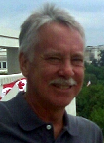 Henry Gholz has been a Program Director in the Division of Environmental Biology at the NSF since 2000, after a distinguished career as Professor of Forest Ecology at the University of Florida for the prior 22 years (where he still holds courtesy faculty appointments in both forestry and geography). While at NSF, Henry managed the Long-Term Ecological Research (LTER) Program for a decade, directed the National Center for Ecological Analysis and Synthesis (NCEAS) in Santa Barbara for its concluding decade, has co-directed the Ecosystem Studies Program since 2000, and has been on the NEON Project Advisory Team. In 2011 he helped launch the new MacroSystems Biology Program, which is aimed at supporting NEON-scale research. Henry also has also previously served as an international forestry advisor to the US Agency for International Development and as a program officer for competitive ecosystems grants at the USDA.
Henry Gholz has been a Program Director in the Division of Environmental Biology at the NSF since 2000, after a distinguished career as Professor of Forest Ecology at the University of Florida for the prior 22 years (where he still holds courtesy faculty appointments in both forestry and geography). While at NSF, Henry managed the Long-Term Ecological Research (LTER) Program for a decade, directed the National Center for Ecological Analysis and Synthesis (NCEAS) in Santa Barbara for its concluding decade, has co-directed the Ecosystem Studies Program since 2000, and has been on the NEON Project Advisory Team. In 2011 he helped launch the new MacroSystems Biology Program, which is aimed at supporting NEON-scale research. Henry also has also previously served as an international forestry advisor to the US Agency for International Development and as a program officer for competitive ecosystems grants at the USDA.
Presentation
Pat Mulroy
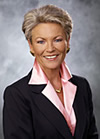 Pat Mulroy oversees the operations of the Southern Nevada Water Authority (SNWA) and the Las Vegas Valley Water District (LVVWD). The Water Authority is responsible for acquiring, treating and delivering water to local agencies that collectively serve 2 million residents and nearly 40 million annual visitors. Mulroy was a principal architect of the Southern Nevada Water Authority, which has served as a model for other Western water agencies since its creation in 1991.
Pat Mulroy oversees the operations of the Southern Nevada Water Authority (SNWA) and the Las Vegas Valley Water District (LVVWD). The Water Authority is responsible for acquiring, treating and delivering water to local agencies that collectively serve 2 million residents and nearly 40 million annual visitors. Mulroy was a principal architect of the Southern Nevada Water Authority, which has served as a model for other Western water agencies since its creation in 1991.
Read more...http://www.snwa.com/about/board_eteam_mulroy.html
Dr. Kelly Redmond
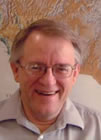 Kelly T. Redmond was born in Wausau Wisconsin, raised in southwest Montana, received a B.S. degree in Physics from the Massachusetts Institute of Technology (1974), and M.S. (1977) and Ph.D. (1982) degrees in Meteorology from the University of
Wisconsin in Madison. He worked in the Atmospheric Sciences
Department at Oregon State University from 1982-1989, the last 6
years as State Climatologist for Oregon, and served as President
of the American Association of State Climatologists in 1989-90. In
2008 Dr. Redmond received the Applied Climatology Award from
the American Meteorological Society (AMS), and was also elected
a Fellow of AMS. Since 1989 he has been the Regional
Climatologist at the Western Regional Climate Center located at
the Desert Research Institute in Reno, and is also deputy Director.
His research and professional interests span every facet of climate
and climate behavior, its physical causes and variability, how
climate interacts with other human and natural processes, and
how such information is acquired, used, communicated, and
perceived. Read More....http://www.dri.edu/kelly-redmond
Kelly T. Redmond was born in Wausau Wisconsin, raised in southwest Montana, received a B.S. degree in Physics from the Massachusetts Institute of Technology (1974), and M.S. (1977) and Ph.D. (1982) degrees in Meteorology from the University of
Wisconsin in Madison. He worked in the Atmospheric Sciences
Department at Oregon State University from 1982-1989, the last 6
years as State Climatologist for Oregon, and served as President
of the American Association of State Climatologists in 1989-90. In
2008 Dr. Redmond received the Applied Climatology Award from
the American Meteorological Society (AMS), and was also elected
a Fellow of AMS. Since 1989 he has been the Regional
Climatologist at the Western Regional Climate Center located at
the Desert Research Institute in Reno, and is also deputy Director.
His research and professional interests span every facet of climate
and climate behavior, its physical causes and variability, how
climate interacts with other human and natural processes, and
how such information is acquired, used, communicated, and
perceived. Read More....http://www.dri.edu/kelly-redmond
Presentation
Dr. Vincent Tidwell
Topic: Climate adaptation through collaborative modeling: Examples from acequia communities, Rio Grande and the Western Interconnection
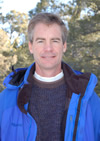 Dr. Vincent Tidwell is a Distinguished Member of the Technical Staff at Sandia National Laboratories. He is leading a multi-laboratory initiative supporting the Western Electricity Coordinating Council, the Electric Reliability Council of Texas, Western States Water Council, and the Western Governor’s Association to integrate issues of water and climate into long term electricity transmission planning in the western U.S. Dr. Tidwell is also a Lead Author for the Land-Water-Energy cross-sectorial chapter for the 2013 National Climate Assessment and supported preparation of the Southwest Regional Chapter. He served on Governor Richardson’s Blue Ribbon Task Force on water.
Dr. Vincent Tidwell is a Distinguished Member of the Technical Staff at Sandia National Laboratories. He is leading a multi-laboratory initiative supporting the Western Electricity Coordinating Council, the Electric Reliability Council of Texas, Western States Water Council, and the Western Governor’s Association to integrate issues of water and climate into long term electricity transmission planning in the western U.S. Dr. Tidwell is also a Lead Author for the Land-Water-Energy cross-sectorial chapter for the 2013 National Climate Assessment and supported preparation of the Southwest Regional Chapter. He served on Governor Richardson’s Blue Ribbon Task Force on water.
Bio
Presentation
Moderators
Dr. Helen Neill
 Associate Professor and Associate Dean, Greenspun College of Urban Affairs
Associate Professor and Associate Dean, Greenspun College of Urban Affairs
Ph.D. University of New Mexico, 1992
Areas of expertise/interest: environmental economics, environmental management, economic valuation, risk, spatial statistics, and key laws and regulations such as the National Environmental Policy Act (NEPA).
Bio
Dr. Scott Mensing
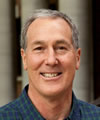 Dr. Mensing is a biogeographer and paleoecologist. He has extensive
Dr. Mensing is a biogeographer and paleoecologist. He has extensive
experience reconstructing Quaternary environments in the Great Basin
and California . His primary research tools are pollen and charcoal analysis
and he maintains the department palynology laboratory. He also has experience
with tree ring analysis and woodrat middens. He enjoys field work and is always
anxious to explore new corners in the intermountain west.
Bio
Dr. Donica Mensing
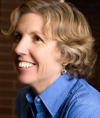 Dr. Mensing is the Associate Professor and Director of Graduate Studies at the Reynolds School of Journalism at the University of Nevada, Reno. She teach a variety of courses, from the introductory class in journalism to a graduate seminar in interactive publishing. Current interest include networked journalism and what it means for journalism education, for journalists and for communities.
Dr. Mensing is the Associate Professor and Director of Graduate Studies at the Reynolds School of Journalism at the University of Nevada, Reno. She teach a variety of courses, from the introductory class in journalism to a graduate seminar in interactive publishing. Current interest include networked journalism and what it means for journalism education, for journalists and for communities.
Bio
Presenters
Gayle Dana
Thomas Piechota


